6 Weeks Pregnant With Twins: Belly Pictures, Symptoms & Ultrasound
When you’re 6 weeks pregnant with twins, your babies are going through an amazing, intensive development. You may also be experiencing a few twin pregnancy symptoms. You should definitely get a positive reading on a pregnancy test if you take one during this week of your pregnancy.
Important: Prenatal vitamin
You need to take a folic acid supplement. Folic acid is a B vitamin, and folic acid supplements are standard for pregnant women and women who plan to become pregnant.
Folic acid helps prevent neural tube defects. You need to take folic acid for the first 12 weeks of pregnancy.
6 weeks pregnant with twins belly pictures
You may be able to spot a small bump by now especially if you’ve been pregnant before. This is due to bloating from the hormonal changes you’re experiencing. If you’ve had babies before you’ll start showing sooner than if you are a first-time mom. Look at week by week pictures of twin pregnancy bellies at different stages.
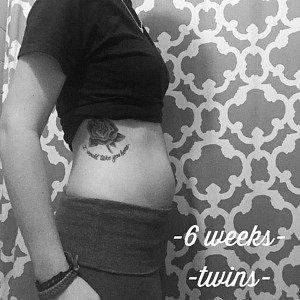
Symptoms of 6 weeks pregnant with twins
Don’t be alarmed if you’re 6 weeks pregnant with twins and don’t feel any signs or symptoms in your body yet. It’s very different from woman to woman and pregnancy to pregnancy how and when your body reacts. Some will experience pregnancy symptoms like:
- Nausea and/or vomiting. Please consult with your doctor if you vomit a lot. They need to find out whether you suffer from hyperemesis gravidarum. It’s important that you are well-hydrated and that you are able to eat.
- Sore or tense breasts.
- Fatigue. You may feel very exhausted at this point in your pregnancy.
- A bloated belly. You’ll start showing sooner with twins especially if you’ve had other children previously.
- Increased need to tinkle. This is due to the increase of the hormone hCG. It increases the blood flow to your pelvic area. Be aware that the risk of developing cystitis is increased when you’re pregnant. If you are unsure whether you have cystitis, contact your doctor. It’s very important that you are treated if you have a urinary tract infection.
6 weeks pregnant with twins ultrasound
At an ultrasound scan at 6 full weeks, a sonographer will most likely be able to spot any type of twin pregnancy. Six full weeks is when you’re 6+0 weeks pregnant.
That’s also called being 7 weeks pregnant. When you’re 6 weeks pregnant with twins, you are between 5 weeks+0 days and 5 weeks+6 days pregnant. A sonographer will only be able to spot dichorionic twins during this week. Dichorionic twins are twins with separate placentas.
They are spotted if the sonographer sees two sacs instead of one. Twins with separate placentas can be both identical or fraternal. All fraternal twins have separate placentas and about 1/3 of identical twins have as well.
From next week, when 6 full weeks have passed, a sonographer should be able to spot twins that share a placenta. Twins that share a placenta are called monochorionic twins and are detected via their heartbeats.
They are identical twins. Read more about dichorionic and monochorionic twins.
Ultrasound & chorionicity in twins
It is important that you find out what your twin’s chorionicity is. Chorionicity relates to whether or not your twins share a placenta. Twins who share a placenta are called monochorionic twins and are more at risk of twin pregnancy complications.
Some women are still being misdiagnosed or are not being told about the importance of correct determination of chorionicity at their ultrasound scans. The picture below is of monochorionic twins at 6+2 weeks.
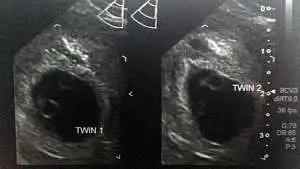
Baby size & development
Your babies measure about 0,5 cm, when you’re 6 weeks pregnant with twins. This is from head to rump. In the first few months of your pregnancy, your babies will be measured from head to rump – named crown rump length (CRL).
Crown rump length is the measurement of the length of human embryos and fetuses from the top of the head (crown) to the bottom of the buttocks (rump). Babies are measured this way because it’s difficult to measure leg length at this point.
Later in your pregnancy, your babies will be measured from crown to heel – this is the equivalent of standing height in older persons. Your baby’s hearts are not fully developed yet but are being formed.
Sex & being pregnant with twins
Having sex can’t hurt your babies. Your babies are well protected in the womb surrounded by fetal membranes and water. There’s never direct contact with the babies.
However, you may experience a little spotting from your cervix when you have intercourse. It’s quite normal and happens due to increased blood supply to the cervix and vaginal walls during pregnancy.
This means that blood vessels are more likely to break during intercourse. If this worries you, or you are experiencing more than a little spotting, contact your doctor.
Does sexual interest change during pregnancy?
Yes. It’s normal that you and your partner’s desire for sex will change during pregnancy. It’s normal to have more or less sexual interest at different stages of pregnancy. Some pregnant women and/or their partners feel uncomfortable having intercourse because of the notion that the babies are present.
Some pregnant women also experience decreased sexual interest due to fatigue, nausea or other related symptoms. Talk to your partner about how you feel and ask about your partner’s feelings and desires.
Being able to talk about this constructively will contribute positively to your relationship.

Twin pregnancy diet
The sensitivity for negative side effects of alcohol, tobacco and certain types of medication is great in the days and weeks to follow. Speak to your doctor about the use or misuse of any of these substances.
You may be able to change to a different brand of medication that will be better for your pregnancy. You may also be able to get some help with any dependency that might be harmful to you or your babies.
Eating healthy, nutritious food is important for you and your babies during pregnancy. Drinking lots of water and stopping or cutting down on sugary drinks is a good idea too. Among other things, this is to prevent you from getting gestational diabetes.
What you need to buy
There’s not much you need to buy at this point in your pregnancy as long as you’re sure that you have folic acid supplements available.
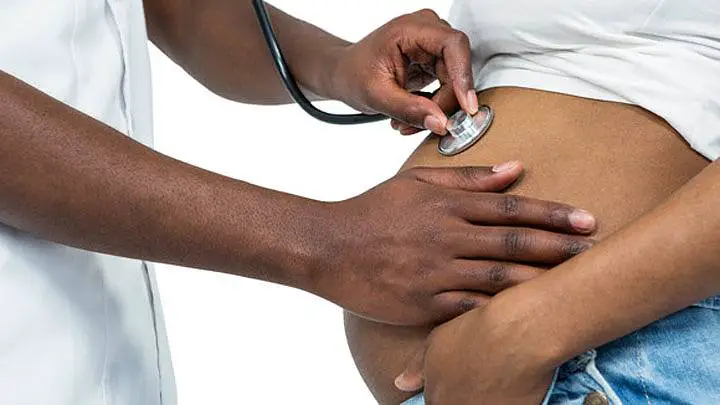
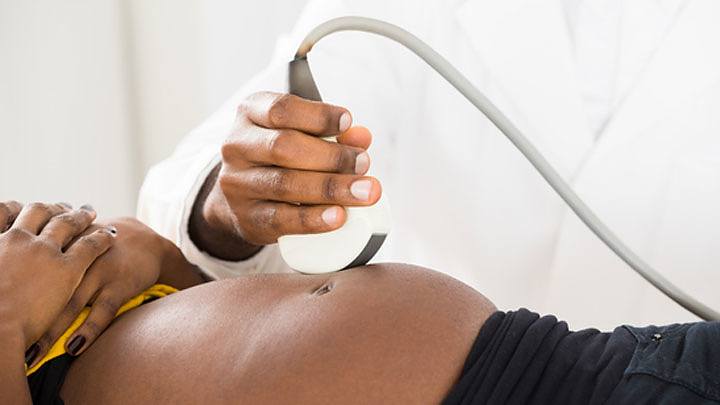

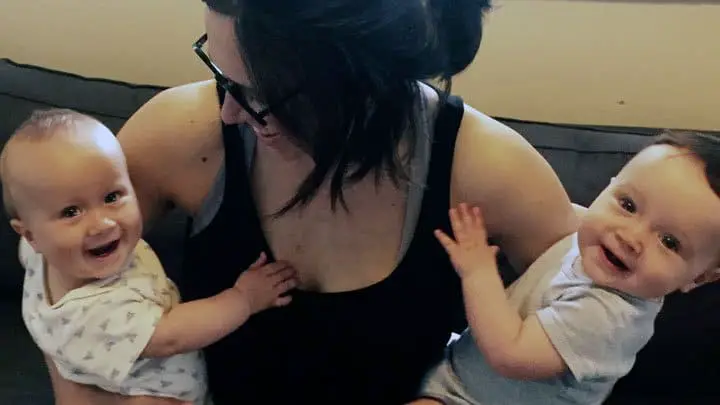
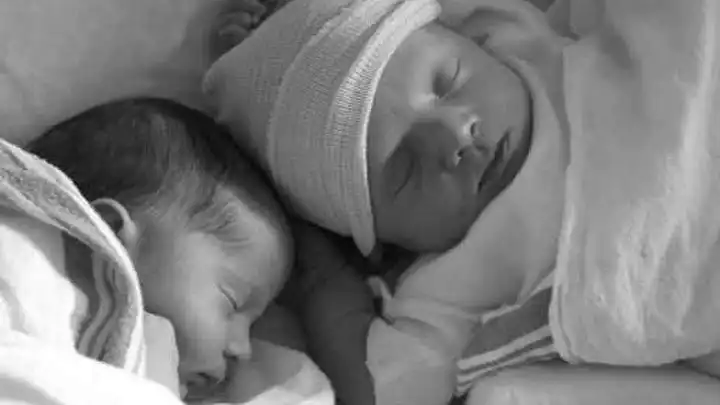
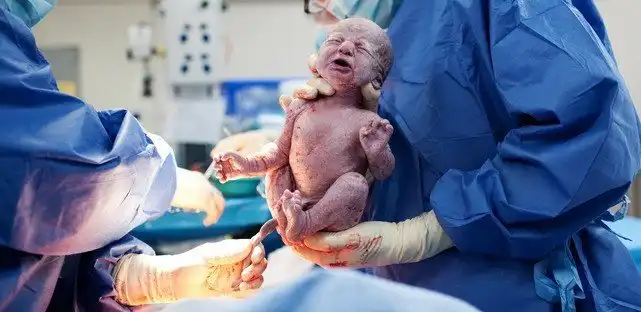
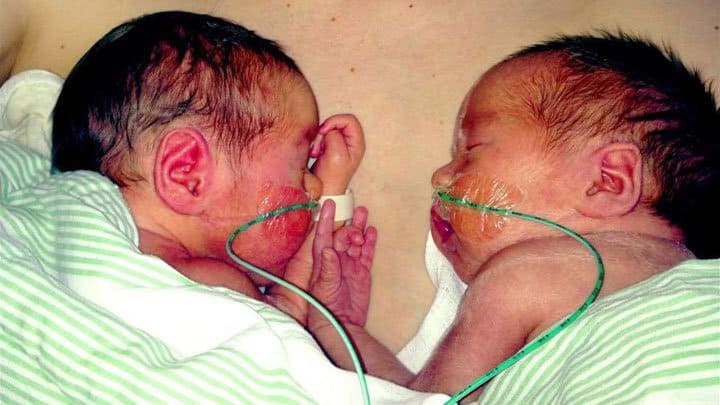

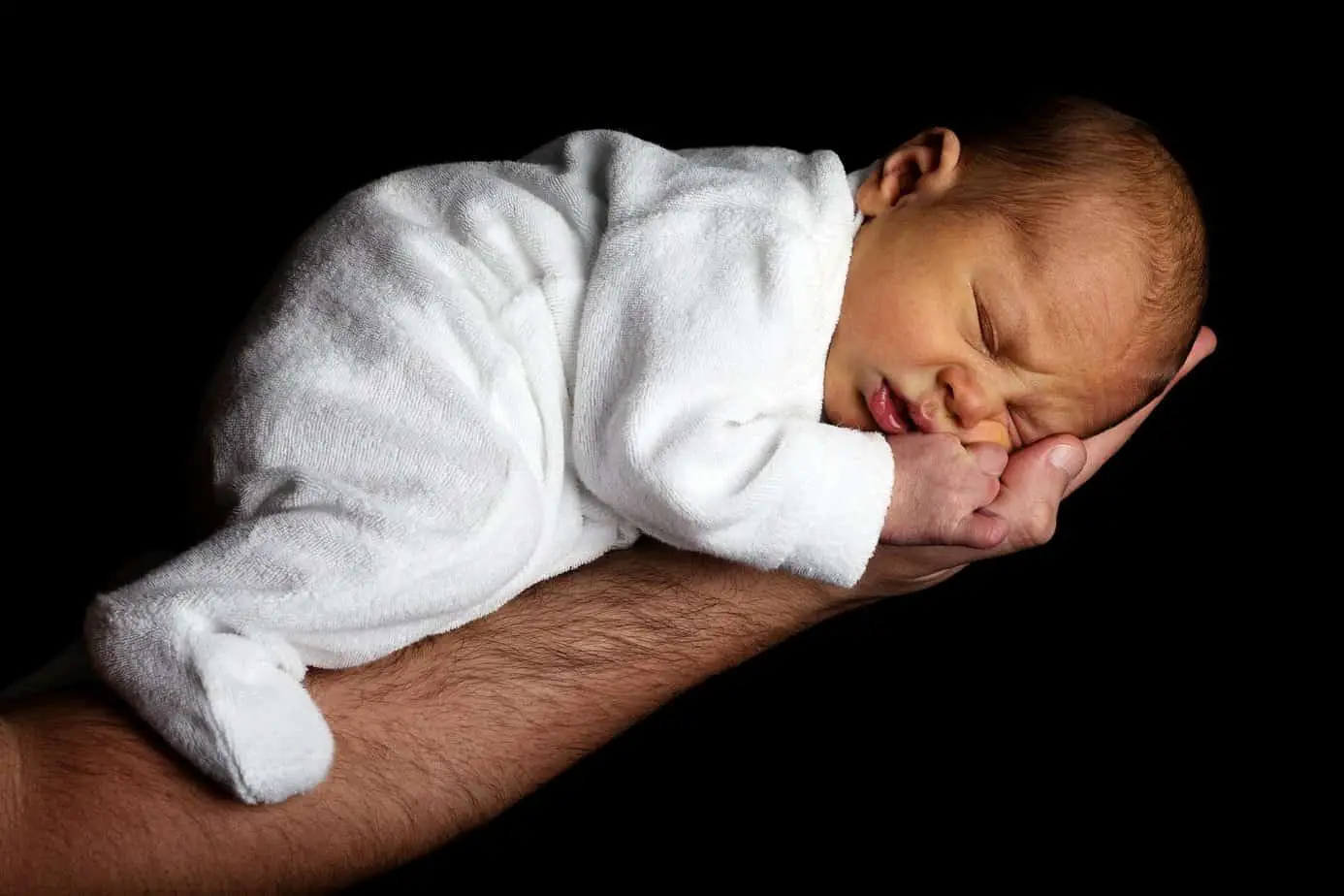


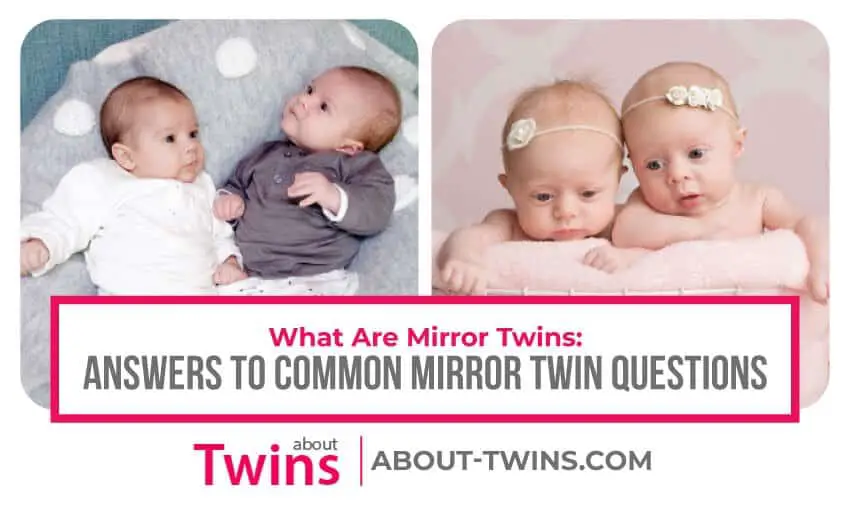


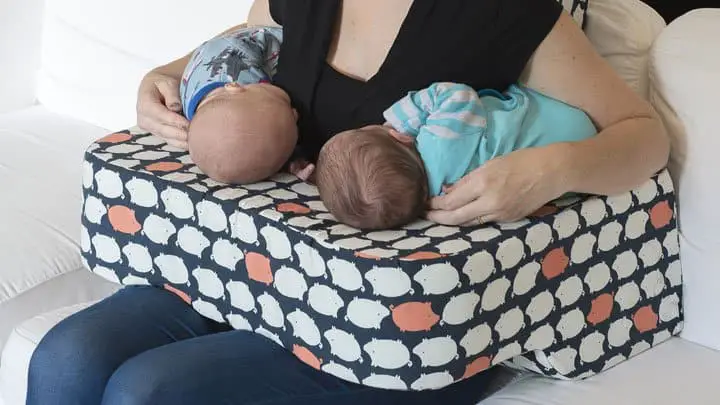
Folic acid as a supplement is harmful. People should be taking l-methylfolate, the natural, methylated form. This is especially vital for those with mthfr gene defects which is about half the population. Eating foods fortified with synthetic folic acid causes high levels of un-methylated folic acid to build up in the body which is not only useless, but it prevents the active l-methylfolate from being available. Please, please, please make an adjustment to your blog about this because too many people are actually getting no protection against birth defects and in fact are building up harmful levels of folic acid.
Hi Carolyne,
Thank you for your comment. The World Health Organization as well as the American Pregnancy Association (and many other associations) strongly recommend daily folic acid supplementation as part of the antenatal care. Could you refer to the research you base your comment on (in relation to folic acid being harmful as a supplement)?